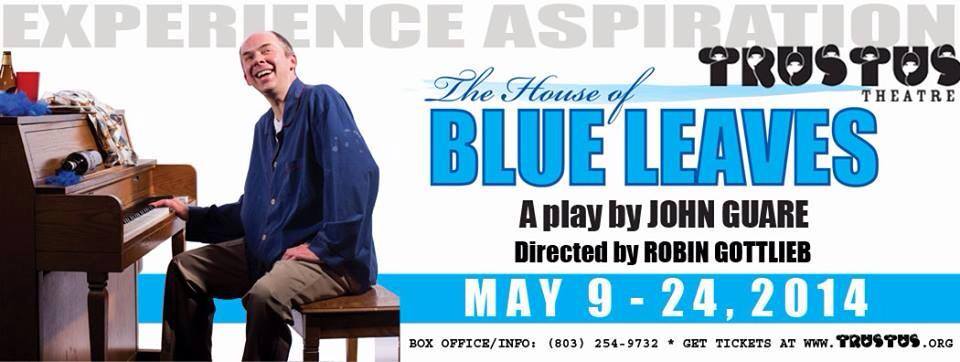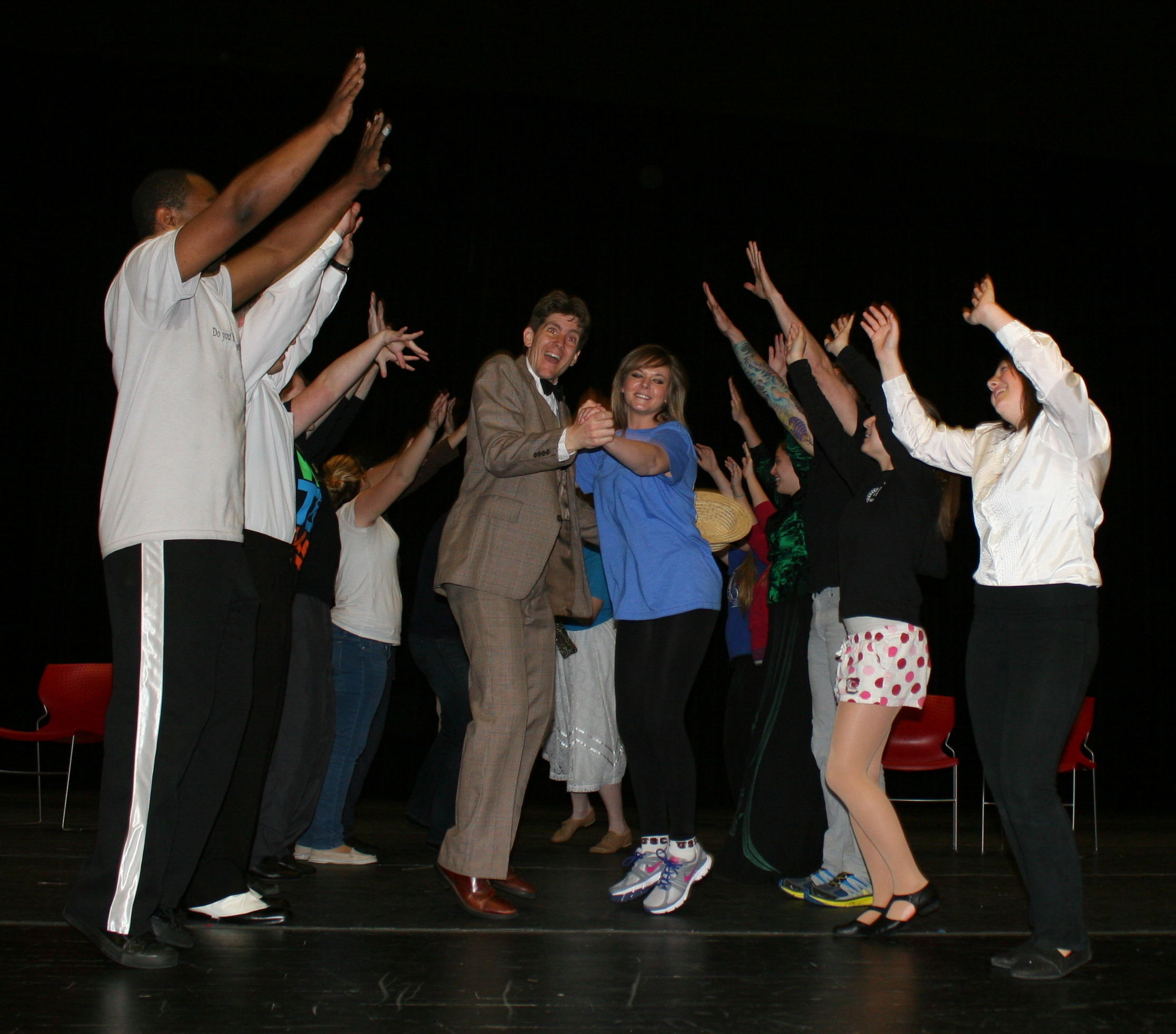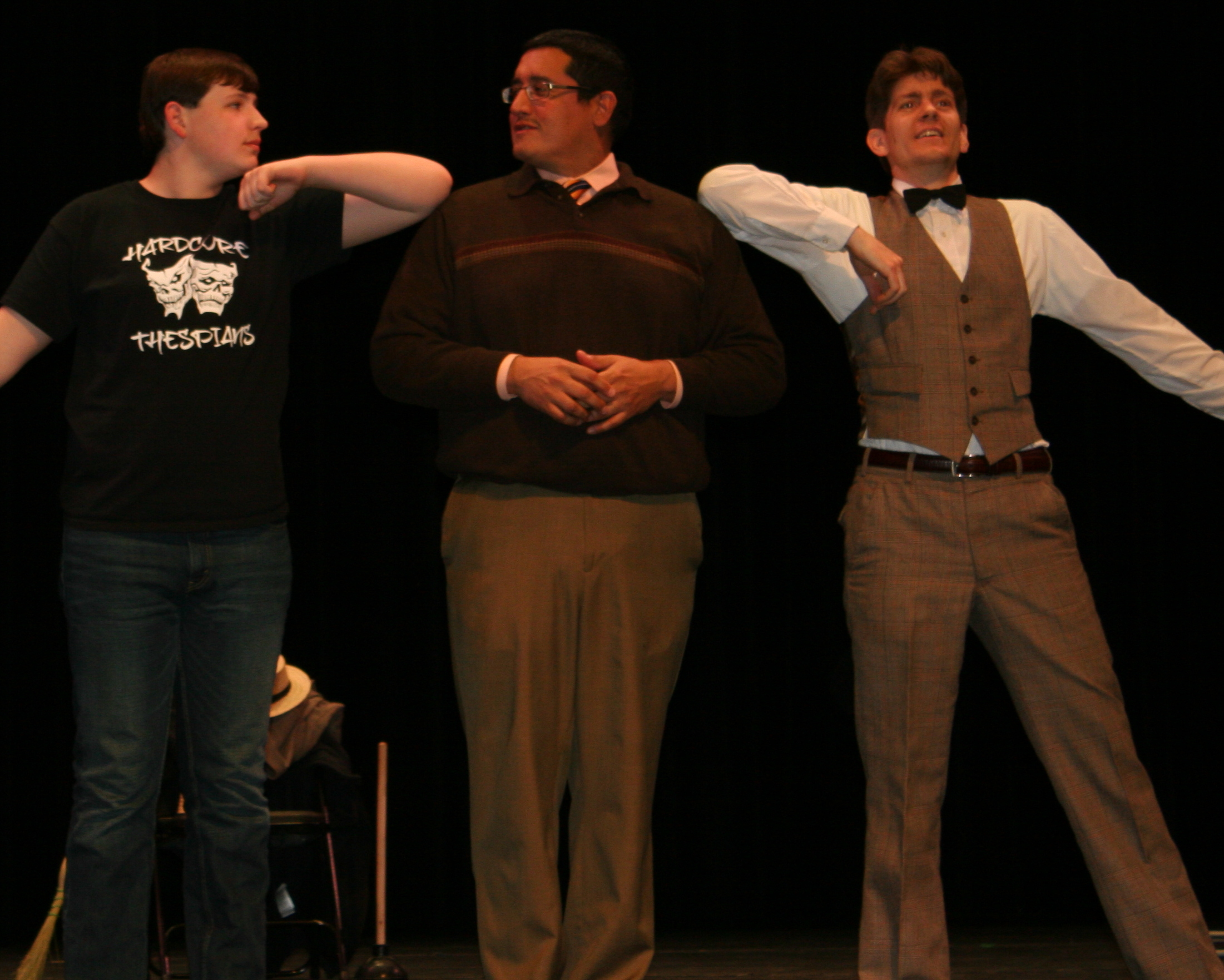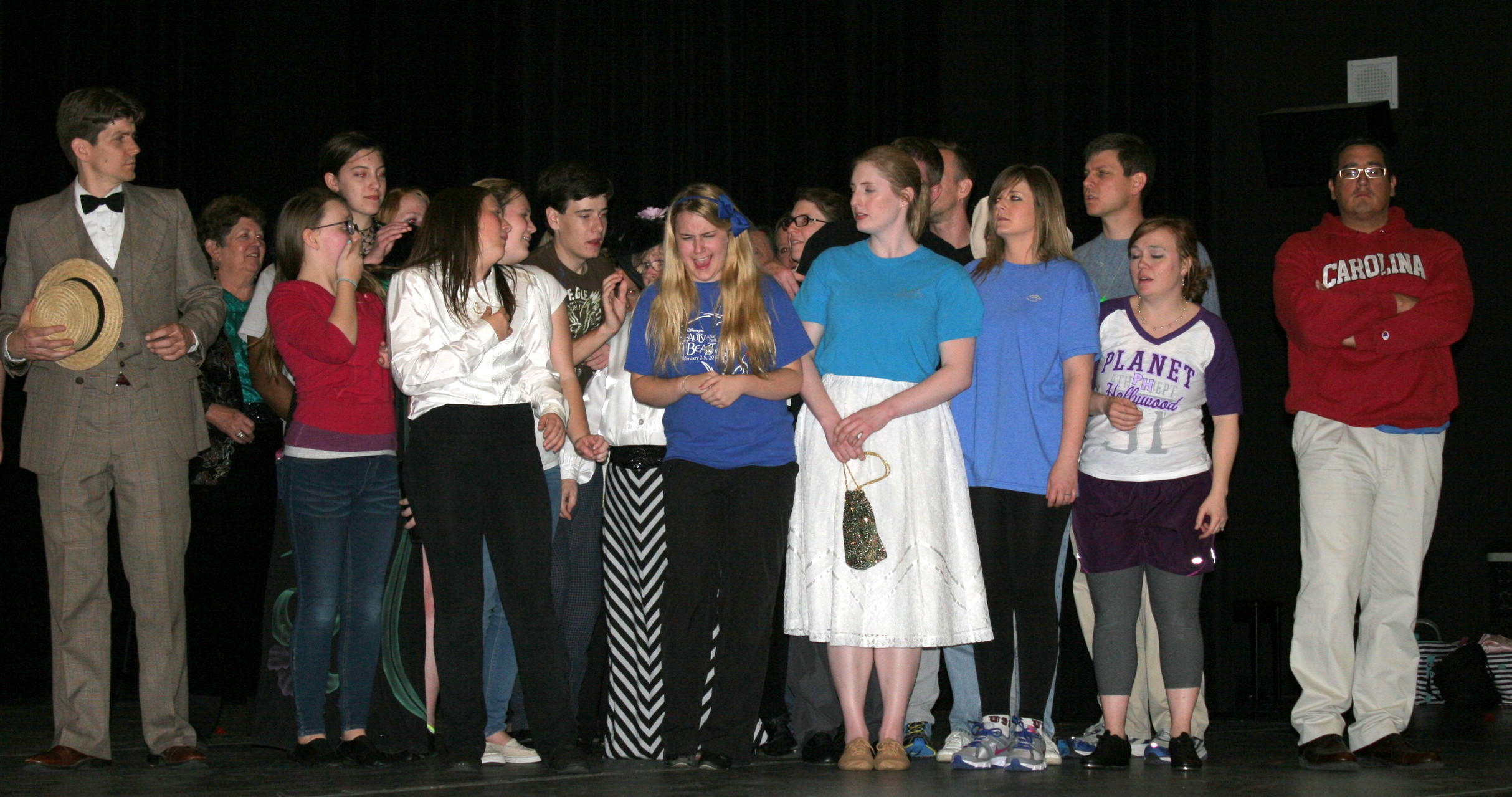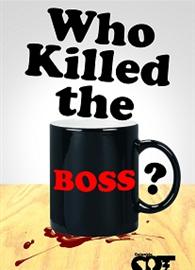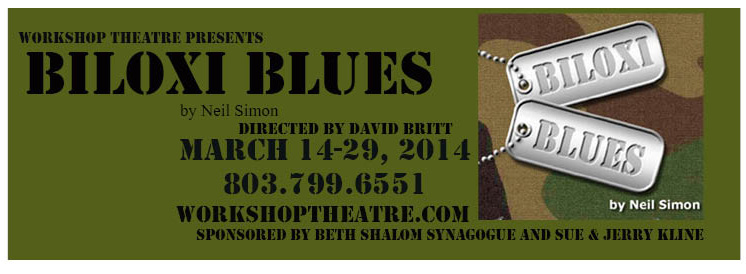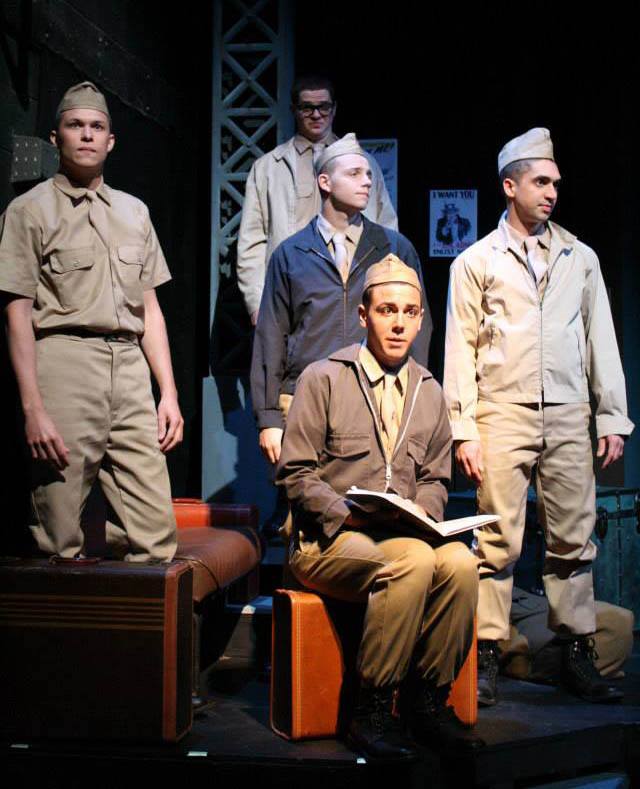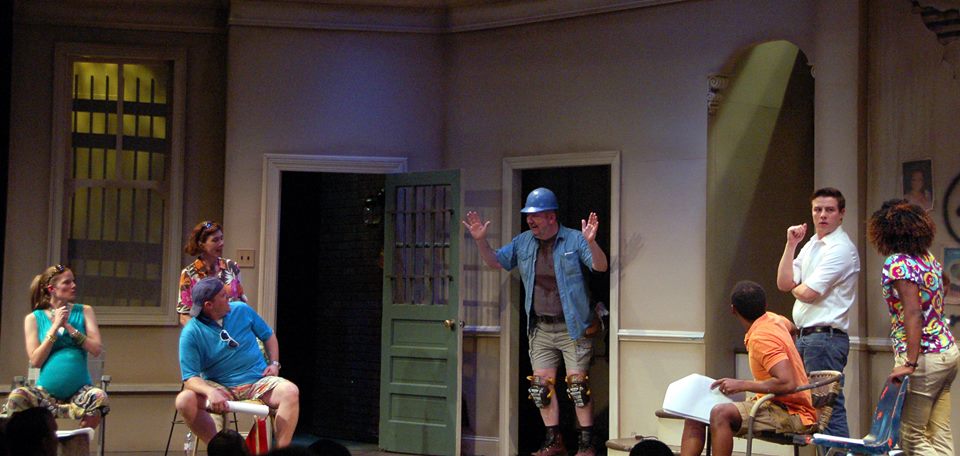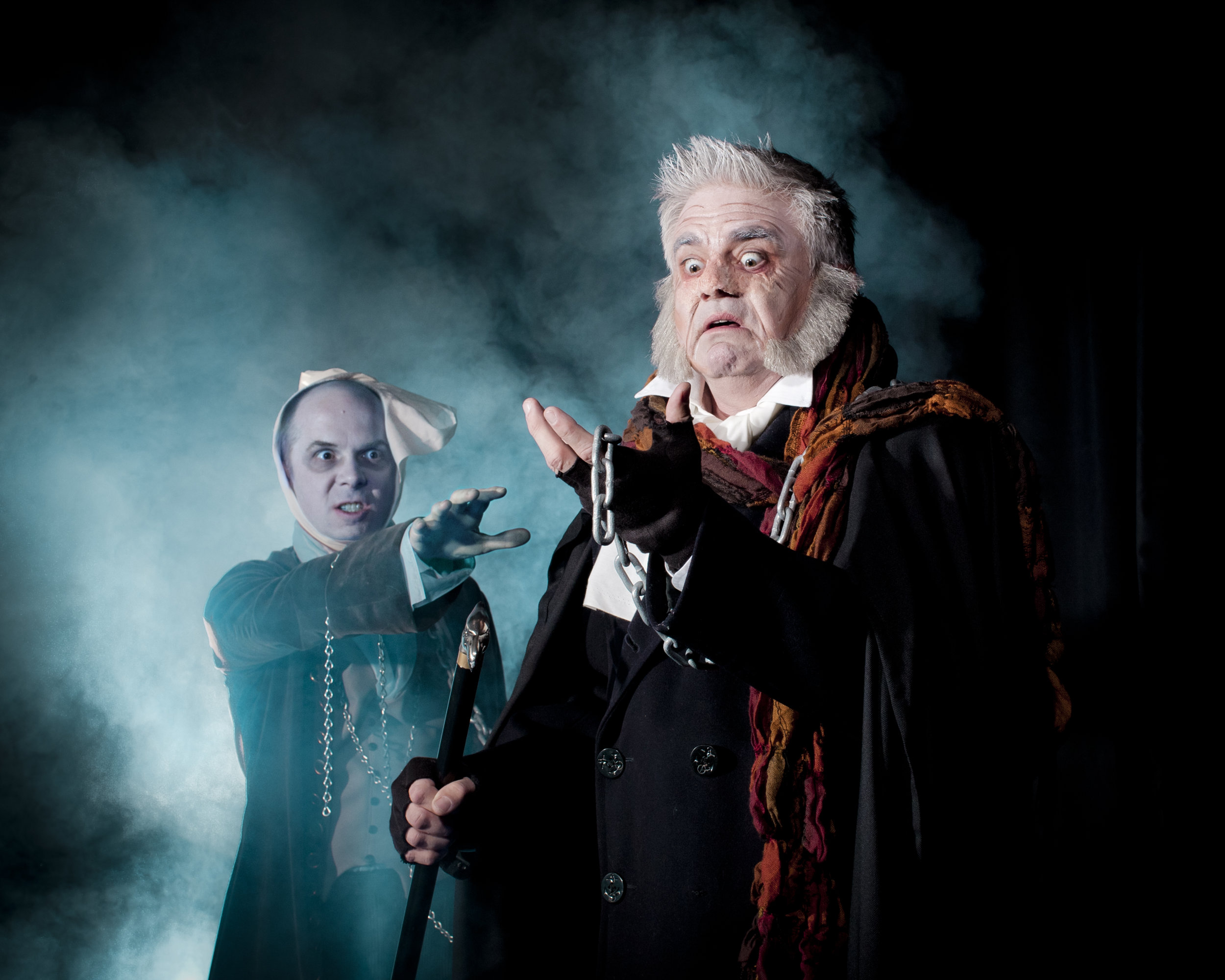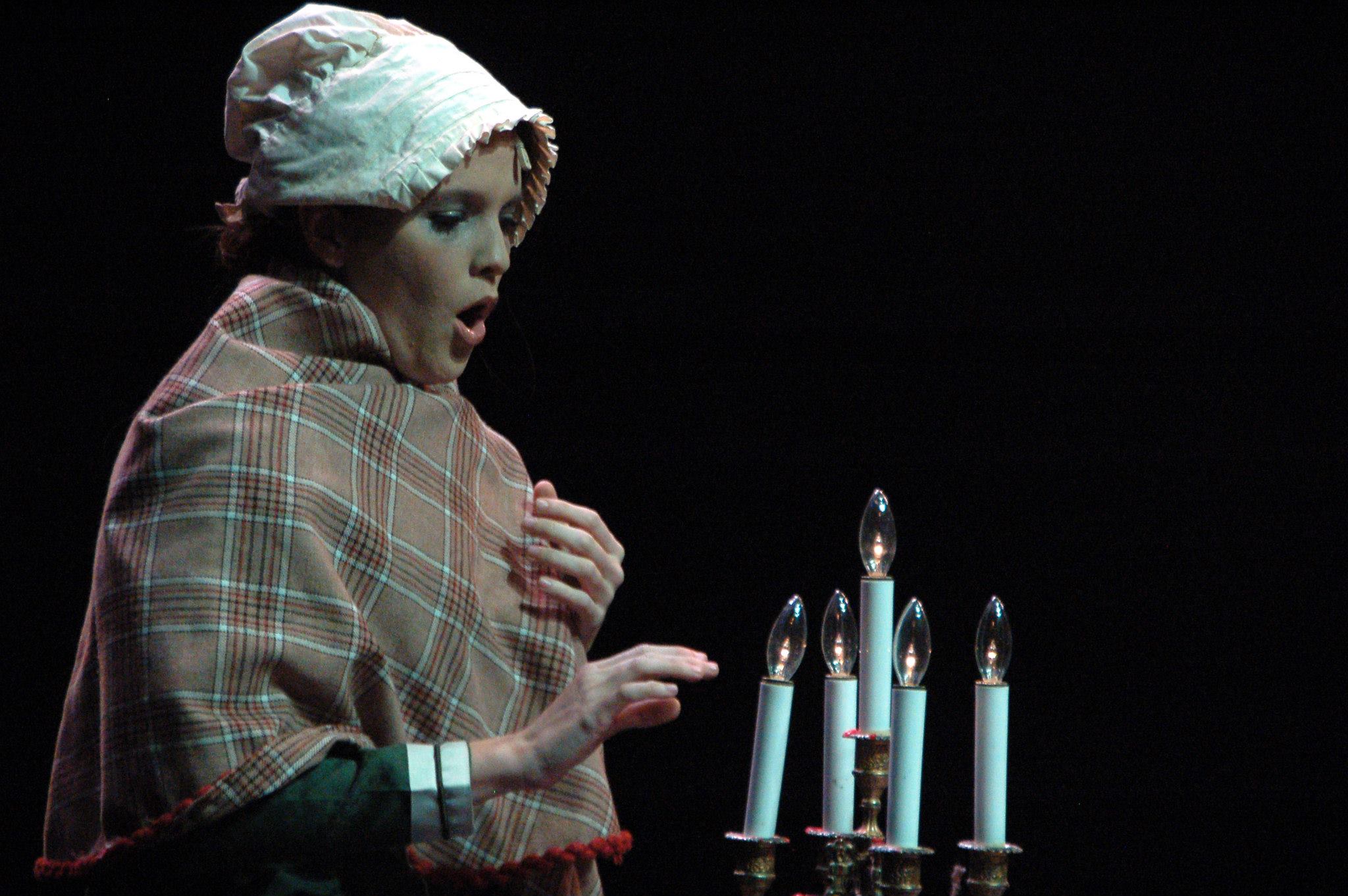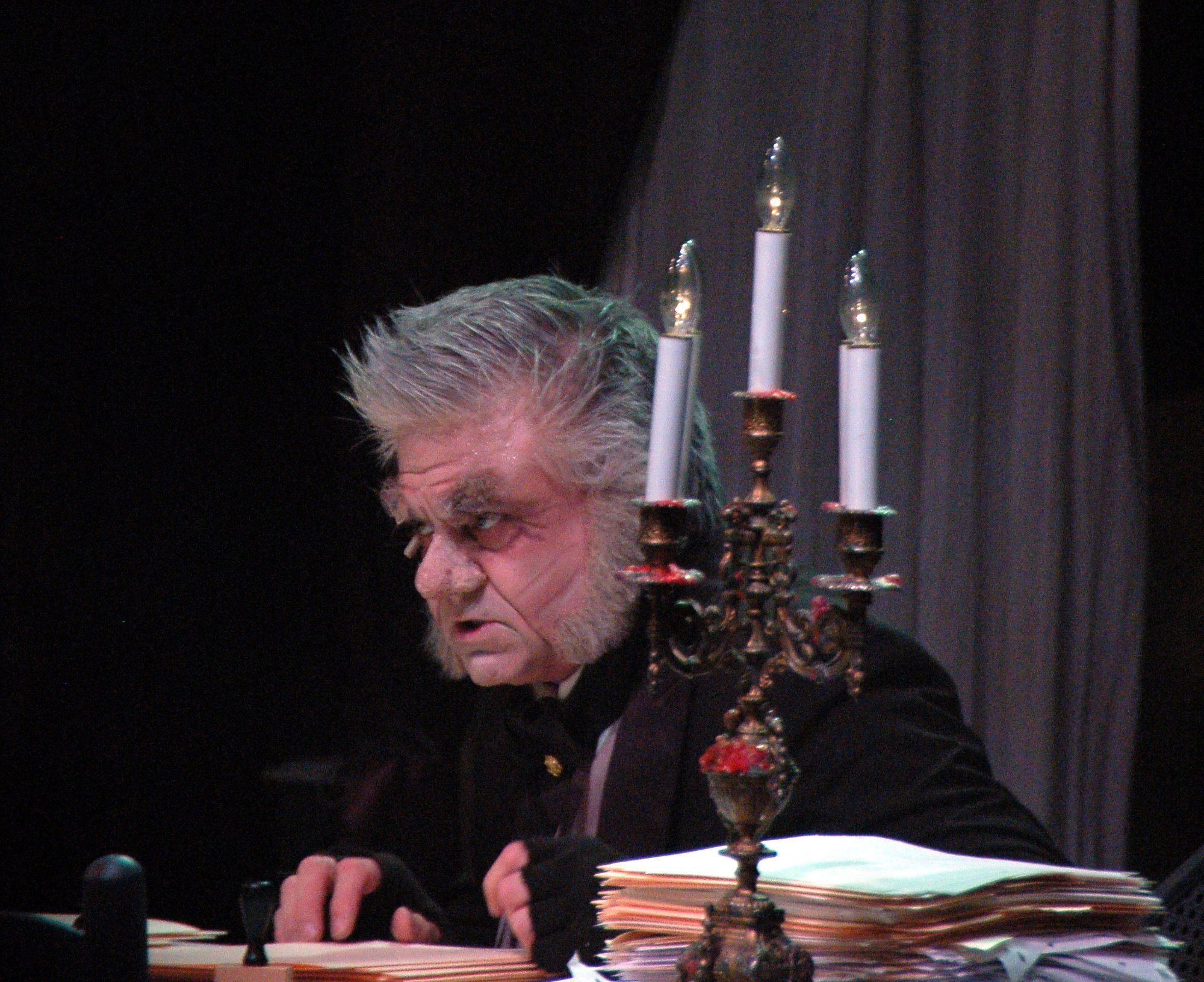 As 2013 draws to a close, we recall the many fun times, the huge number of cultural events, and all the seasonal festivals that we enjoyed in the Midlands this past year. For my money, one of the very best was the 27th Annual Chili Cook-Off in Five Points last month. So before all the fireworks and champagne tomorrow, join me as I reflect on the day that Jasper went and ate some chili!
As 2013 draws to a close, we recall the many fun times, the huge number of cultural events, and all the seasonal festivals that we enjoyed in the Midlands this past year. For my money, one of the very best was the 27th Annual Chili Cook-Off in Five Points last month. So before all the fireworks and champagne tomorrow, join me as I reflect on the day that Jasper went and ate some chili!
 Photojournalist and Jasper staffer Thomas Hammond has braved the dangers of Lebanon and Syria in the middle of that region's worst conflict in years. (You can see photos and excerpts from his account in a recent Free Times cover story, as well as here and here.) My only question was: could he face down the fiery heat of a habanero pepper?
Photojournalist and Jasper staffer Thomas Hammond has braved the dangers of Lebanon and Syria in the middle of that region's worst conflict in years. (You can see photos and excerpts from his account in a recent Free Times cover story, as well as here and here.) My only question was: could he face down the fiery heat of a habanero pepper?
To that end, Thomas and I ventured into the heart of Five Points, to take part in and to document the judging of the chili as part of the 27th Annual Chili Cook-Off. Founded as a festive fundraiser by the original owner of Group Therapy and situated in the early years in that popular bar's parking lot, the Chili Cook-Off has grown to be an annual event of the Five Points Association, stretching across several blocks along Greene and Pavillion Streets, and raising thousand of dollars for Camp Kemo and the Hope Center. Scott "Hollywood" Fleming, the current owner of Group, serves as the Festival Chair, while his wife Christina Fleming coordinates the judges.

Arriving at noon, I took a stroll around the newly expanded festival area. The event now encompasses not just the small block between Group and the Post Office, but also two blocks of Pavillion Street, which runs perpendicular to Greene, along side the park, where the annual Blues Festival was conveniently running simultaneously. It made for much more elbow room, and an easier flow of foot traffic, especially for the youngest and the oldest of attendees. Live bands, plenty of beer, and lot of college students notwithstanding, the Chili Cook-Off is unquestionably a family-friendly event, and there were plenty of grandparents with their grandchildren, and not just at the "Little Peppers" children's play area. Indeed, baby bjorns and buggies were everywhere, and in particular it was a pleasure to see new mom Lindsey Burns, a Group Therapy bartender/manager, out with her newborn baby daughter Augusta. OK, OK, daughter Annelee Charlotte ... although I still think Augusta would be an awesome name.

There's a prize for "best set-up," i.e. how a contestant's booth/tent is arranged and decorated, and so some teams go all out. One group was called "Breaking Wind," and wore haz-mat suits; someone told me they had some type of blue rock candy on hand too, in a nod to the AMC series Breaking Bad. Another team's members were dressed in Ninja attire, and were working on a "Sweet Ninja" vegetarian chili. A number of teams also had creative names; one of my favorites was a group of co-workers from Providence Hospital, whose chili was called "Holy Ghost Pepper." One of the guys joked that that they hadn't gotten permission from the sisters, but figured that if necessary, they could get forgiveness later. Budweiser had set up a gigantic, two-story mobile bar, the sort of contraption that looked like a Decepticon just waiting to transform into its true nature.

Thomas had not arrived just yet, so I checked out the VIP area, i.e. the front bar of the nearby Pour House. Or in Columbia-speak, "where the old Frank's Hot Dogs used to be." I'm significantly less than a very important person, but the designation applied to judges and event sponsors, and Five Points Association Director Amy Beth Franks had graciously hooked us up with access-granting wristbands and event T-shirts, so I wandered in. A friendly volunteer named Gloria welcomed all who passed in with a festive red pepper necklace and a hug. Gloria and I discussed other events where she has volunteered, often through COR, the Columbia Opportunity Resource, including the Crawfish Festival, the World Beer Festival, and St. Patty's Day in Five Points. Inside, believe it or not, was more food, most donated by local businesses like Jimmy John's, Insomnia Cookies, Chick-Fil-A, Village Idiot, Zorba's, and many others. Budweiser had some Shocktop Pumpkin Wheat Beer available, and naturally I had to sample a pint. It wasn't half bad, even though I'm normally not impressed by Shocktop, and really have to be in the right mood for a wheat beer. Unless it's roasted dark into a dunkel weiss, a wheat beer often has an odd tang that people usually try to cut with something fruity, either in the beer, or by way of a lemon or orange slice floating in it. In actuality, something bland works much better, like watermelon (in Skull Coast's wheat beer) peaches (in R. J. Rocker's "Son of a Peach") and now pumpkin. There wasn't any extra nutmeg or cinnamon or coriander like so many of the seasonal pumpkin microbrews, just a vague sweet richness, which along with the amber color was reminiscent of a Yuengling, even though that's a lager and this was an ale.

It was time to meet up with Thomas. The first band, The Other Brothers, were playing a languid acoustic arrangement of the classic Drivin' 'N' Cryin' song "Straight to Hell" on a stage with its back to Harden St. and the Five Points Fountain. The weather was just as cooperative as one could wish for in mid-November, a balmy Indian Summer afternoon. People were already sampling plenty of chili, donating a dollar or more for each cup, and the water bottle table, staffed by Kathryn Daughtry and her friend Felicia, was doing brisk business. (Kathryn is not only a popular and proficient Group Therapy bartender, but also Jasper's downstairs neighbor in the Arcade, where she works at the Over the Top Boutique. Also raking in the dollar bills was Emmy, the jello shot girl inside Group, where we headed for the judging.

Christina Fleming and Gretchen Lambert met us at Group's back bar, where the judging took place. This is the L-shaped annex off the pool room area, where you can still meet someone "under the moose." Starting around 1:15, cooks bought in samples of their chilis in uniform styrofoam cups, appearing to contain 16 oz. each. Christina and Gretchen then assigned each a number, and noted if there was anything special, i.e. if it was a vegetarian or extra-hot chili. A few cooks had extra containers, with garnishes like sour cream or shredded cheese, so that those could be sprinkled on if desired. I was fascinated by how incredibly organized the process was - after a number of years of experience, Christina has perfected this down to a science. Tasting was blind - all the judges knew was a number, and if the chili was (intended to be) regular, extra-hot, or veggie. Therefore, afterwards, when people said "Hey, which did you enjoy?" all I could say was "Umm... number 17, the one that seemed to have some curry in there."


Since the judges were primarily volunteers from the community, event, and supporters of the bar, the Five Points Association, or all of the above - but not professional chili connoisseurs - all we did was give a score, from zero to five, to each chili in turn. A judge or two in past years has griped that they were given no guidelines to follow, but honestly, chaos would have ensued if we had taken time to follow some official definition or set of parameters for 48 different chilis. Instead, we simply graded them based solely on personal taste and preferences, and scores were added up at the end. Therefore, if someone was a hard-core traditionalist and felt that chili should contain only meat with no beans, or only beef with no other meat, they could judge and grade accordingly, but everyone followed their own agenda. Which, realistically, seems to me the best and fairest way to do it.
You read that correctly, however. 48 different chilis! There were some 12 or possibly 14 judges. 10 were listed in the festival brochure, but that didn't include me or Thomas, and at least one more didn't get his bio back to them in time. Ten places were set up around the bar, with scoring sheets, but eventually there were four judges at a nearby booth... but I think two people switched from the bar to the booth. So let's say 12. Thomas wanted to stay mobile so that he could take advantage of good photo opportunities as they happened, so he stood next to me, but sampled everything as well, while I actually wrote down my/our score on the tally sheet. I say "our" since we agreed on just about every chili. Although I think he might have been a little more generous than I - I gave mainly twos and threes, very few fours, and not a single five. But no zeros or ones either.

I've been around many photographers over the years, including being photographed by Thomas, but I never really paid attention to how they do it. Thomas fascinated me - he'd be chatting casually about something, and then suddenly like a puma he’d pounce on specific photo opportunities, sometimes moving quickly and leaning in, shooting 3 or 4 pics in quick succession. Christina and Gretchen provided an endless supply of plastic spoons. The rules were simple: one spoonful of each chili, no double-dipping, mark down your score, and pass the container to the next judge. You discarded your spoon, took another one, and repeated the process. This made for a completely germ-free experience. (And just to be clear - Scott and Christina are among Five Points' greenest, most environmentally-friendly business owners, so I'm sure those spoons were appropriately destined for recycling.)

Among the judges were Katie Atkinson, Jason Broome, Will Green from The Whig, and my friends William Corbett (a Budweiser employee but long time Group regular) and Moffatt Bradford (who competed in the very first Chili Cook-Off in 1986.) I wasn't there in 1986, as I was still living in Georgia before moving back to Columbia just a few months later, and I'm pretty sure I missed the next few years due to rehearsals. I know for a fact I was at the 1995 installment, as I have photos, in which I was wearing the same denim jacket I realized I was now wearing 18 years later.
It was a really fast pace. Those little plastic teaspoons were generally overflowing, so perhaps they were really closer to a tablespoonful. By that reckoning, with 48 chilis to try, each of us ate anywhere from one (48 teaspoons) to three (48 tablespoons) 16-oz. cups of chili over the course of perhaps 45 minutes. A number of people later in thee day asked if I had heartburn or a stomach ache, as if I were one of those competitive Coney Island hot dog-eaters, but really it wasn't that much chili to consume, and within a few hours I was in fact noshing on some of those subs and sweets in the VIP area. Thomas was on my left, and the cups of chili to sample started with him, then passed to me, and so on to each judge's right, then around to the back table. In other words, were there any question about how hot something might be, Thomas was my go-to for "Hey Mikey" moments. Moffatt arrived last, and so brought up the rear. Although as you will see below, even those labeled hottest of the hot were really relatively innocuous. Most 16 ounce cups were still 1/3 to 1/2 full after being sampled by everyone. Christina and Gretchen made sure everyone had a beer or two to help cleanse our palates, courtesy of Group, and I enjoyed a nice cold Yuengling Bock. Bock is defined variously as "a dark, malty, lightly hopped beer," "a strong lager of German origin, " and "a very strong lager traditionally brewed in the fall and aged through the winter for consumption in the spring." It's one of my favorites, and if you like regular Yuengling, this is similar, just moreso. More rich dark malt taste, but also more hops.

But how was the chili, you ask? Nothing was bad although Moffatt grumbled, only half-jokingly, that all were bad. What he meant was that none were remarkably tasty, and none were particularly hot or spicy. A few had some interesting seasoning, but often were undercooked, or were not technically chili at all. About halfway through the process, several of the judges began to joke that certain entries were really just spaghetti sauce, or stew, but not chili. Jason observed that so many chefs essentially "forgot what the hell salt is!" i.e. all they needed was a little more seasoning to enhance decent selections of meat, chili peppers, and beans. I suspect one could have improved almost every entry with a pinch to a dash of salt, pepper, chili powder and/or curry powder, cumin, garlic, and a dash of the hot sauce of your choice.
Presentation helped - the addition of cheese and sour cream certainly helped a few. Feta cheese crumbled on top of one entry looked ridiculous but was an interesting taste - I'd love to be able to savor that dish more some day. A number were either burned, or the chefs may have poured in way too much Liquid Smoke, or as one judge observed, possibly they burned the chili, then poured in Liquid Smoke to disguise it. Some included interesting veggies beyond the customary peppers, beans and onions. One featured bacon, although it wasn't crispy crumbled bacon but rather a strip or two floating in with everything else, and therefore it seemed a little undercooked, and you could see grease floating to the top. Another clearly incorporated sausage. A few boasted venison which you couldn't necessarily distinguish, if for example the venison had been ground up along with the beef.

Several inventively used pulled pork, which is perfect for slow cooking with added spices, and soaks up hot sauce perfectly...but by definition, it's long and stringy and hard to eat with a spoon out of a small cup. One chili improbably sported marshmallows on top, which added nothing taste-wise, and led to more than a few derisive comments. One (almost certainly Joe Turkaly's chili, because I tried some at his booth later) featured brisket, which was tasty but, like many of the entries we sampled, could have been cooked longer. (A number of folks noted however that Joe got a late start.) That would be one lesson and recommendation I would pass along to all future contestants: get started just as early as you can, so as to allow for the heat of the peppers and seasonings to be absorbed into the meat, and for the diverse flavors to meld together better. One memorable chili towards the end, which turned out to be the Festival's overall winner, Chef Gary Uwanawich's Sizzle, included pulled pork, and was topped with a bacon-wrapped poblano chili.


At some point during the judging, long-time friend and supporter of Jasper Rob Sprankle showed up. Rob, an accomplished local actor as well as photographer, was looking for a way to get access to the roof. While we suspect that more than a few Group patrons have tried to do that over the years, Rob's interest was legit, as he was taking photos for Camp Kemo, one of the beneficiaries of festival proceeds.

Rob's friend and high school classmate Dan Lowe is a frequent competitor and often wins the People's Choice award, i.e. the most money raised; his wife Fauni is a nurse manager at Children's Hospital, and according to Rob they are "very cool people and really care about the cause. They are such incredible unsung heroes in this community." In fact, a number of Palmetto Richland staff comprised the cooking team. Rob has graciously allowed us to use some of his photos here. Later in the day I ran into his daughter Haley, and I took great delight in introducing her around as "quite possibly Columbia's most gifted teenage babe actress, singer and dancer." Which is true, but more importantly mortified her, which was the goal.

Once judging was done, Kristina and Gretchen tallied the results, and our judging duties were complete. Thomas took off to document the spirit of the event via more visuals. (Thomas's photos can be seen at the Jasper Facebook Page.) Jason, Moffatt and I chatted with musician/actor/bartender Stanford Gardner inside the VIP area for a while, after which Moffatt and I took a stroll through the festival. Local brewers Conquest Brewing had a tent, and I enjoyed a nice, rich, coffee-tasting Medusa Stout. Other bands played, including Bossman, Atlas Road Crew, and Calvin and Friends. When word came down as to the winners, we congratulated Joe Turkaly, and were happy to meet his mother, who who introduced us to Slivovitz, a Croatian schnapps flavored with plum and juniper. The one question we forgot to ask her was if she had ever met Frank Zappa in the 1970's, which could explain much. Joe has been competing in the Chili Cook-Off (and often winning) since the early 1990's.
This was the official roster of winners (the numbers refer to booth number) :
• Best Overall Set-Up: Sweet Ninja Chili (#29)
• Best Vegetarian: Team #45 (Jake’s on Devine)
• Best Bar/Restaurant Chili: Riunite and Chili Rocks (#48)
• Best Edible Hot: Nuclear Meltdown (#23)
• Most Money Raised (“The Silver Spoon Award” Winners) : Porky’s Revenge Pulled Pork Chili from Lowecountry Cookin’ (#37)
• Overall 3rd Place: Texas Heat Carolina Sweet (#43)
• Overall 2nd Place: Killah’s Redemption (#7)
• Overall 1st Place: Chef Gary’s Sizzle (#46)
The sun was starting to set as the official festivities slowly wound down around 6 PM. Many attendees took the occasion to head over to the adjacent Blues Festival, where later slide guitar legend Sonny Landreth performed, followed by an all-star tribute to Frank Smoak. It had been a delightful afternoon.
Why was this one of the most enjoyable events I attended all year? Simple. It was well-planned, and well-attended. Thousands of people were on hand, but there was never a sense of claustrophobia, and you could always move around freely. There was plenty of food, not just chili; there were plenty of beverages for every taste. Everything went to a good cause. People of all ages and colors (and colors of hair, including assorted shades of Day-Glo) were in attendance. Same-sex couples milled about holding hands, as did those of opposite genders. There were plenty of silver-haired grandparents, but many were wearing denim jackets, and enjoyed a beer or two along with their chili. There were plenty of college students, but they enjoyed the vintage roots, rock, funk, and blues music that was being performed. There were plenty of little children with parents and older siblings, and this was like another State Fair for them. As far as I could tell, there was not a single "incident" anywhere, and indeed the whole experience was as safe as a school Maypole dance. The entire day was simultaneously wholesome, and yet still a fun, throwdown party with beer and chili and rock-and-roll. And that's about as good as it can get.
~ August Krickel

 There's no shortage of seasonal favorites to be found around town. The winter holidays are all about tradition; as days grow shorter, darker, and colder, we're comforted by what is familiar. Local theatres are no exception, offering revivals of yuletide favorites, as well as productions of classics from the screen and stage. Here are just a few!
There's no shortage of seasonal favorites to be found around town. The winter holidays are all about tradition; as days grow shorter, darker, and colder, we're comforted by what is familiar. Local theatres are no exception, offering revivals of yuletide favorites, as well as productions of classics from the screen and stage. Here are just a few! Most of director Robert Harrelson's cast return, including Debra Leopard, MJ Maurer, Courtney Long, Anne Merritt Snider, Courtney Long, Sam Edelson, and Antoine T. Marion. Run dates are December 4-13; for information, call 407-319-2596, or visit http://www.onstagesc.com/. There will also be a special staged reading of the sequel, A Very Second Samuel Christmas on Saturday, December 6, with the playwright in attendance - your chance to give feedback on a new work in progress!
Most of director Robert Harrelson's cast return, including Debra Leopard, MJ Maurer, Courtney Long, Anne Merritt Snider, Courtney Long, Sam Edelson, and Antoine T. Marion. Run dates are December 4-13; for information, call 407-319-2596, or visit http://www.onstagesc.com/. There will also be a special staged reading of the sequel, A Very Second Samuel Christmas on Saturday, December 6, with the playwright in attendance - your chance to give feedback on a new work in progress!







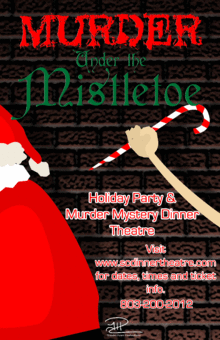



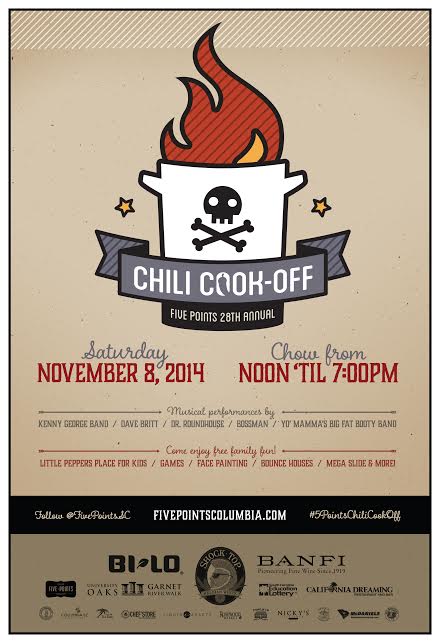
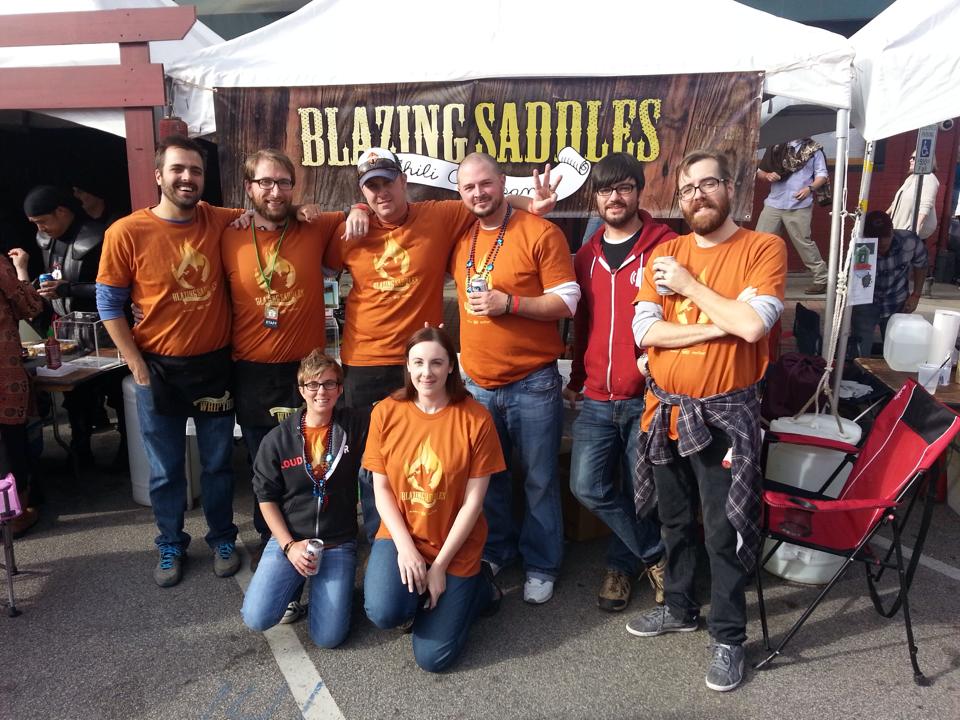
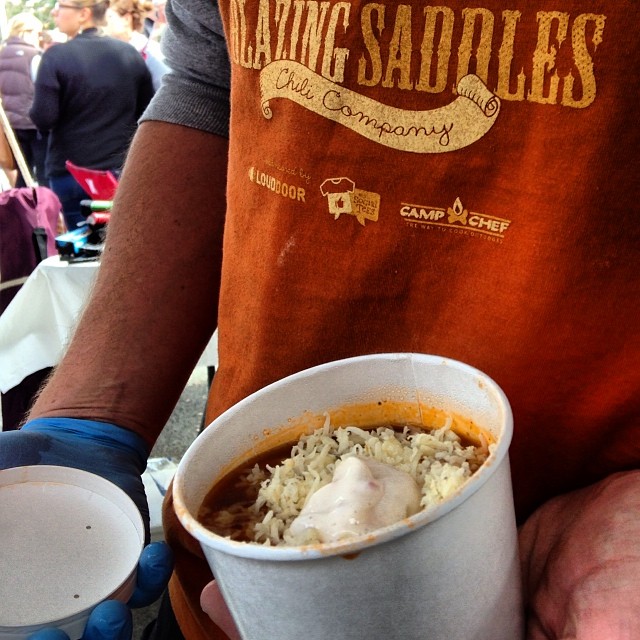














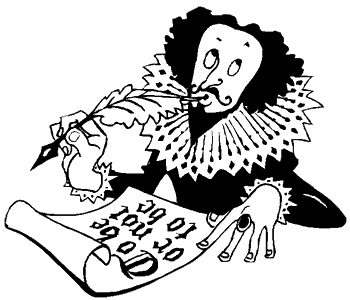
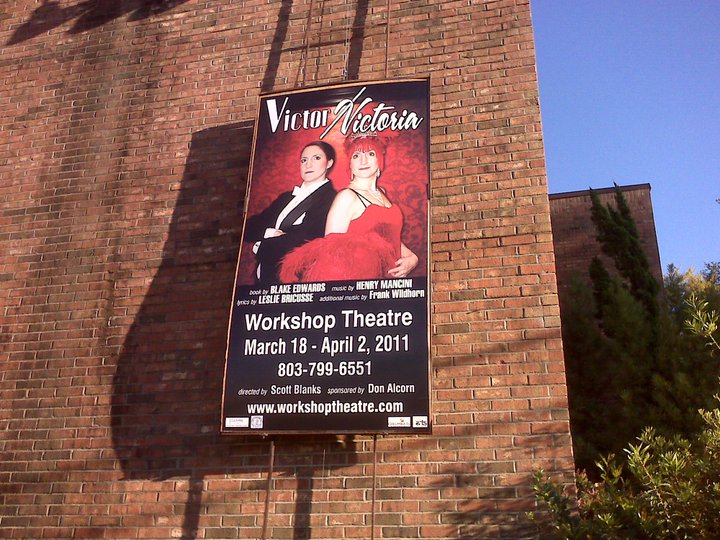

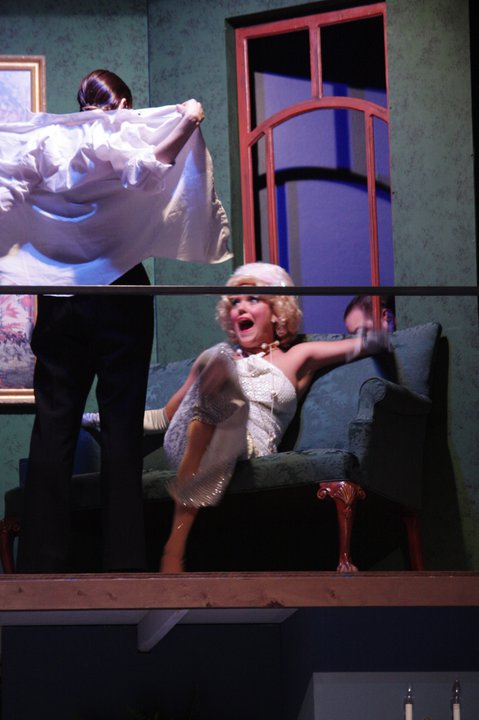
![Robin Gottlieb, Kevin Bush, Matthew DeGuire, and Laurel Posey in [title of show] - photo by Richard Arthur Kiraly Photography](http://static1.squarespace.com/static/57502a0ed51cd4162ff3f79f/58190d5e99a7b1c194c45cca/58190e4399a7b1c194c478ac/1478037059175/title.jpg?format=original)

